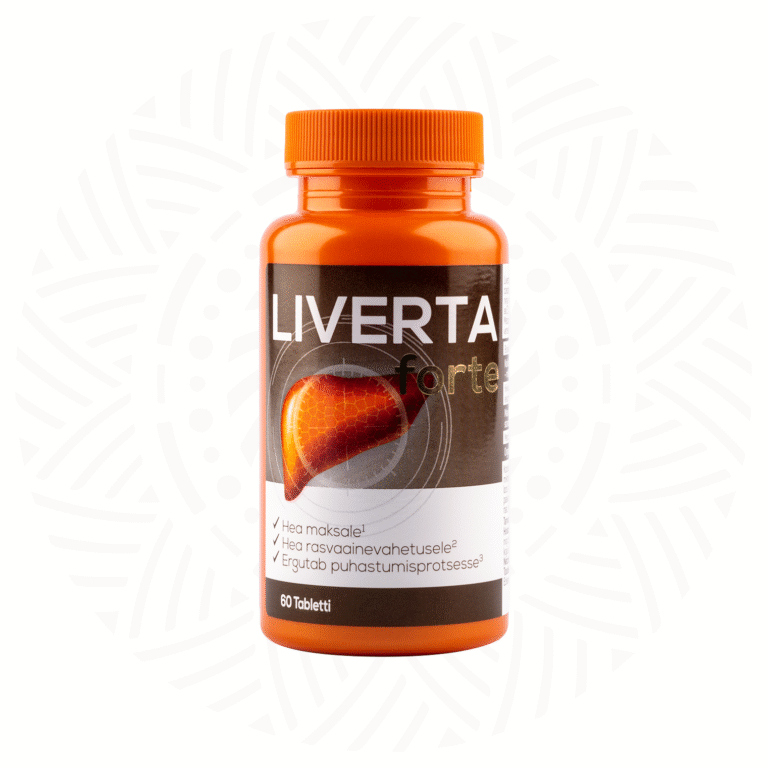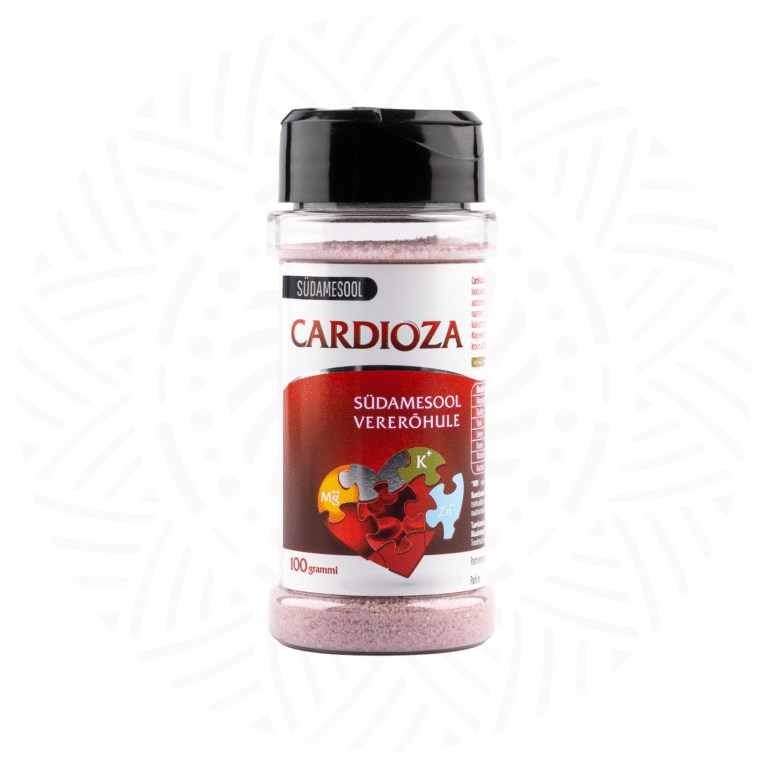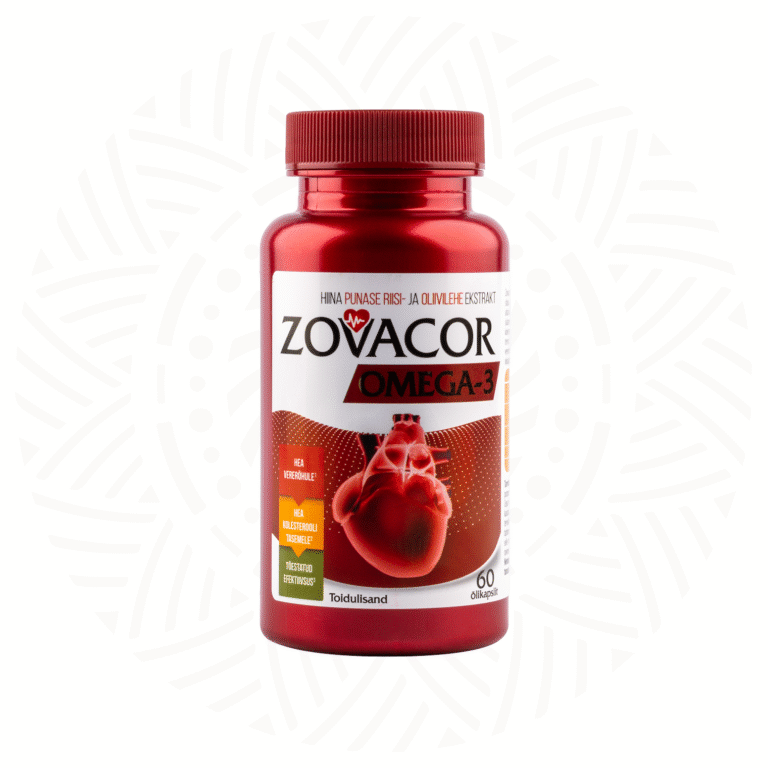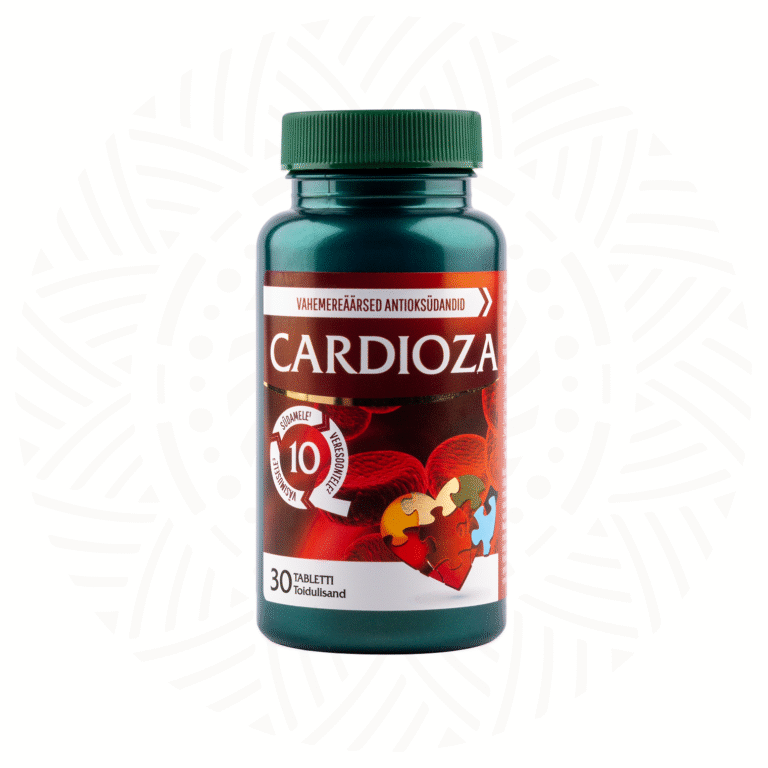In today’s fast-paced world, we often eat whatever is convenient and tastes good. Satisfying hunger is undoubtedly an essential instinct for survival—at least in the short term. However, if we aim to live longer and more fulfilling lives than our grandparents, we should ask ourselves whether our hasty and convenience-driven food choices enhance our lives or secretly rob us of precious years with our children and grandchildren.
In modern Western society, it can be said that most cardiovascular diseases are “eaten in.” Despite the vast variety of food available in stores and significant medical advancements, humanity has not become healthier.
On the contrary, cardiovascular problems have surged, and unfortunately, Estonians frequently rank among the highest in Europe for these issues. One major concern is high blood pressure, or hypertension. According to the Estonian Health Insurance Fund, approximately 375,000 people in Estonia struggle with hypertension.
Why is this happening?
The main reason lies in the fact that the daily diet of Estonians is very monotonous. Too few vegetables, legumes, fruits, and fish are consumed, while “bad” fats—saturated and trans fats—are consumed in excess.
Saturated fats are predominantly found in animal fats, such as lard and butter. Trans fats are commonly found in deep-fried foods, such as French fries and pastries. Bad fats promote the production of bad cholesterol in the body. Excessive consumption of salt, sugar, and processed foods is also harmful.
One consequence of an unbalanced diet is weight problems—when the body does not receive the necessary nutrients, it signals us to eat more. The health burden caused by poor nutrition in Estonia is comparable to that caused by smoking and alcohol consumption.
Obesity, lack of physical activity, stress, alcohol consumption, smoking, and excessive salt intake reduce the elasticity of blood vessels and cause inflammation in the vascular system. This leads to increased blood pressure.
High blood pressure creeps up unnoticed. Elevated blood pressure (above 120/85 mmHg) is often asymptomatic. Occasionally, it may cause headaches, fatigue, balance issues, nervousness, and heart palpitations.
Persistently high or fluctuating blood pressure can lead to complications such as stroke, heart attack, vision impairment, heart and kidney failure, and erectile dysfunction. These complications develop over time, strike unexpectedly, and are irreversible.
What should we eat to live a long and fulfilling life?
The answer is simple—eat healthily and stay physically active. The heart thrives on regular, moderate physical activity. Healthy lifestyle choices offer a great chance to avoid medications, even for those predisposed to cardiovascular diseases. Cardiologists increasingly emphasize the importance of antioxidants, following the Mediterranean diet as a model.
The Mediterranean diet is not a diet but rather an eating habit that reduces the risk of various diseases, such as obesity, diabetes, and cardiovascular conditions. The foundation of the Mediterranean diet consists of vegetables, fruits, herbs, nuts, legumes, and whole grains. Fish and seafood play a significant role, while red meat is consumed only occasionally. Herbs and spices are emphasized as they help reduce excessive salt intake.
Sugar is rarely used in the Mediterranean diet, as it is high in calories and contributes to rapid weight gain, placing additional strain on the heart and joints. Instead of sugary treats, Mediterranean cultures favor fruits. Red meat and traditional sweets are limited to less than two servings per week.
The most important drink in the Mediterranean diet is water. Coffee and tea are also acceptable. Additionally, the Mediterranean diet allows for moderate consumption of high-quality red wine, not primarily for alcohol but for the antioxidants it contains. However, it is best to obtain blood vessel-supporting antioxidants without alcohol. If consumed, it should be limited to one glass of high-quality red wine with a meal.
The cornerstone of the Mediterranean diet’s antioxidants and healthy fats is olives. The most extensively studied phytonutrient in olives is oleuropein. Oleuropein gives olives their bitter taste, which is why they are often soaked in brine for several weeks after harvesting to reduce bitterness.
High-quality extra virgin olive oil is incredibly healthy, thanks to its powerful antioxidants like oleuropein—it may be one of the healthiest fats on the planet.
In summary, the Mediterranean diet stands out for its focus on plant-based foods, fresh ingredients, and high-quality fats. The power of the Mediterranean diet is immense. Clinical studies suggest that it can reduce the risk of cardiovascular diseases by one-third.
Even in pharmaceutical research, such significant effects are rarely observed. If fully adopting the Mediterranean diet proves challenging, the easiest way to benefit from its antioxidants is by regularly taking Cardioza and Cardioza Forte products for blood pressure support. These products contain oleuropein, a key component of the Mediterranean diet.








